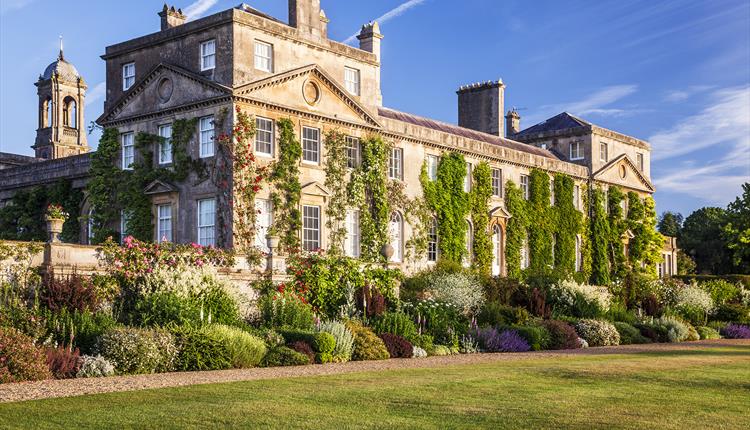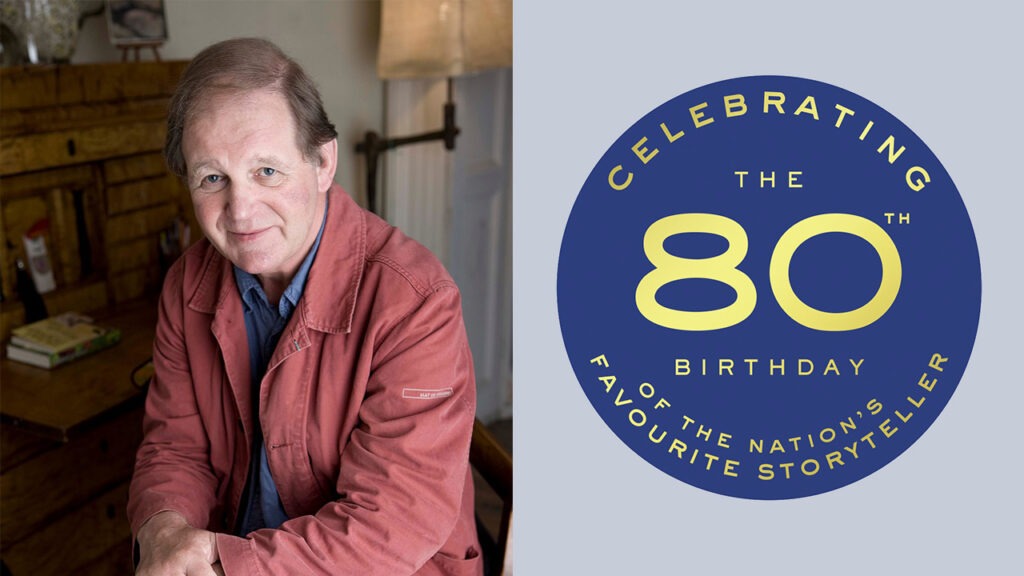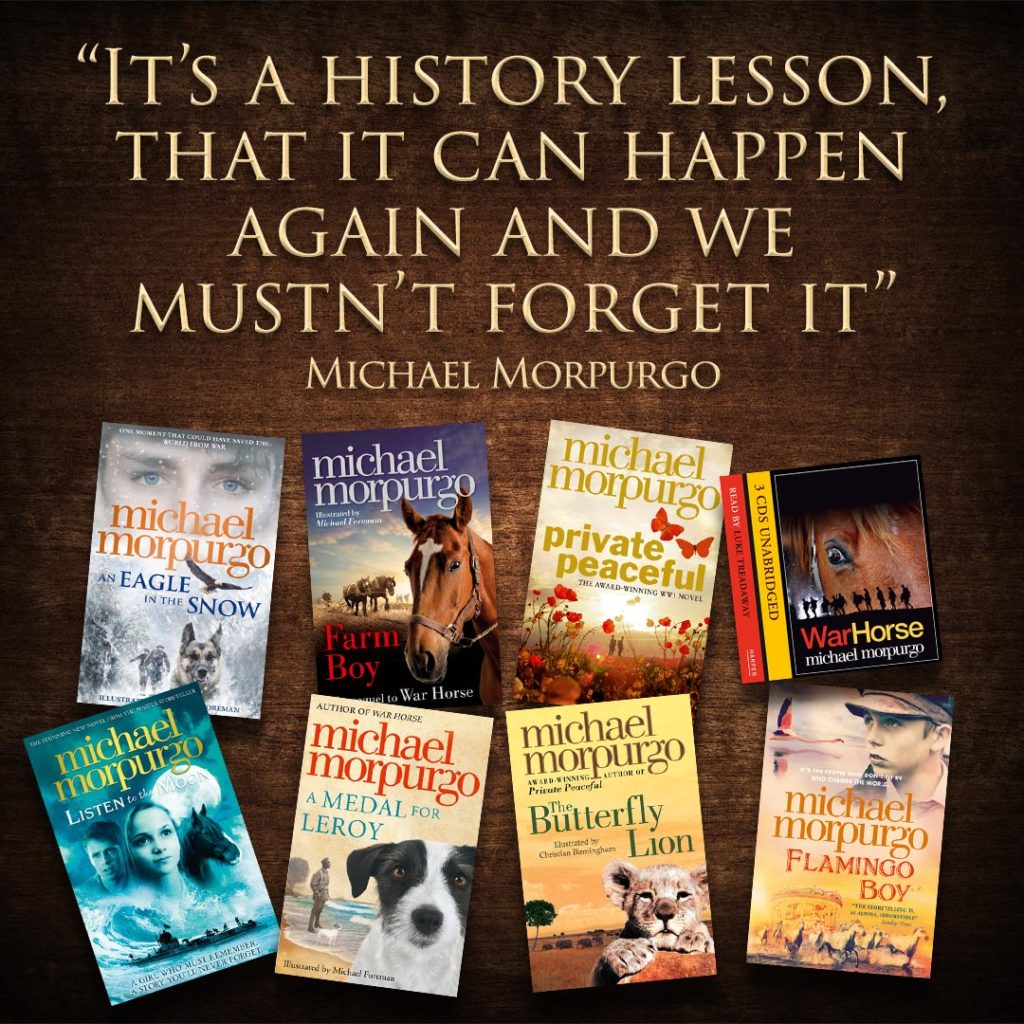Michael Morpurgo’s strong opinions on the most fitting way to commemorate the First World War’s 100th anniversary were outlined in his talk tonight at Wiltshire’s Bowood House on the theme, ‘War Horse and the Pity of War: Writing about the First World War’.
Addressing a gathering of 100 guests in the Robert Adam-designed Orangery of the Wiltshire home of the Marquis and Marchioness of Lansdowne, the former Children’s Laureate and author of over 130 books stressed that honouring the millions who lost their lives as a result of the 1914-1918 conflict, acknowledging the continued suffering of many others long afterwards and learning lessons from the horrors of war are the messages to steer 2014’s centenary commemorations.
Michael Morpurgo also highlighted in his after-dinner speech the people and the stories that influenced him as a boy and later inspired him to write ‘War Horse‘, telling the tale of Joey – the horse purchased by the Army for service in the French battlefields of World War 1 – and the attempts of his previous owner, young Albert, to bring him safely home.
The very location of the event also resonated strongly with the evening’s underlying theme as, from 1915-1919, Bowood House had served as a Red Cross Hospital, set up and run by the 5th Marchioness of Lansdowne with 20 nurses tending to 54 patients. Since the re-opening of the House & Gardens at the beginning of April for the 2014 season, the ‘For King and Country: Bowood and the First World War’ exhibition has been attracting visitors to The Orangery. How the war personally affected the estate, its employees and the Lansdowne family is revealed through related paintings and showcases featuring photographs, letters and other documents of the time.
Among these exhibits is a copy of the 5th Marquess of Lansdowne’s ‘Peace Letter’ to the Daily Telegraph of 29 November 1917, three years after his younger son, Lord Charles Mercer Nairne – a Major in the 1st King’s Royal Dragoon Guards – had been killed at Ypres on 29 October 1914. Appalled at the scale of slaughter from a war that had been expected to last just a few months, Lord Lansdowne drew on his considerable experience as a distinguished statesman and called for Britain to negotiate a peace treaty with Germany. Yet while Lord Lansdowne’s advocacy was highly informed and well-considered, his viewpoint on peace negotiation was extremely unpopular among those singularly focused on the prospect of victory.
Charlie Lansdowne, the 9th Marquis – great-grandson of the 5th Marquis and grandson of Lord Charles – said at the dinner,
“Michael Morpurgo has recently been a leading participant in the public debate, increasingly being covered in the press, around the lessons of the First World War and how best to commemorate it a century later. We are therefore extremely honoured to welcome him to Bowood House tonight to address the subject here. Re-reading my great-grandfather’s ‘Peace Letter’ earlier this evening and then chatting to Michael Morpurgo afterwards, I realise that the overlap in their respective views on the pity of war, and hopes for peace, is quite striking.
“My wife and I are also delighted that tonight’s Bowood House dinner looks to the future too in raising funds for Farms for City Children – the charity that Michael set up in 1976 with his wife, Clare. Their aim to expand the horizons of children from towns and cities by encouraging them out towards countryside is also one for whole-hearted applause.”



